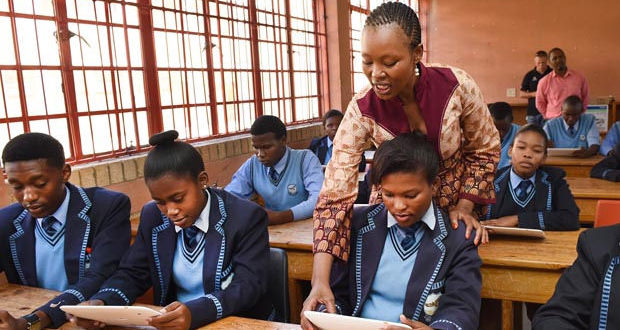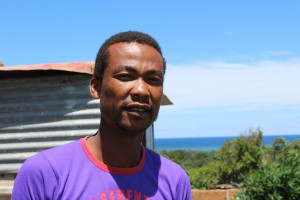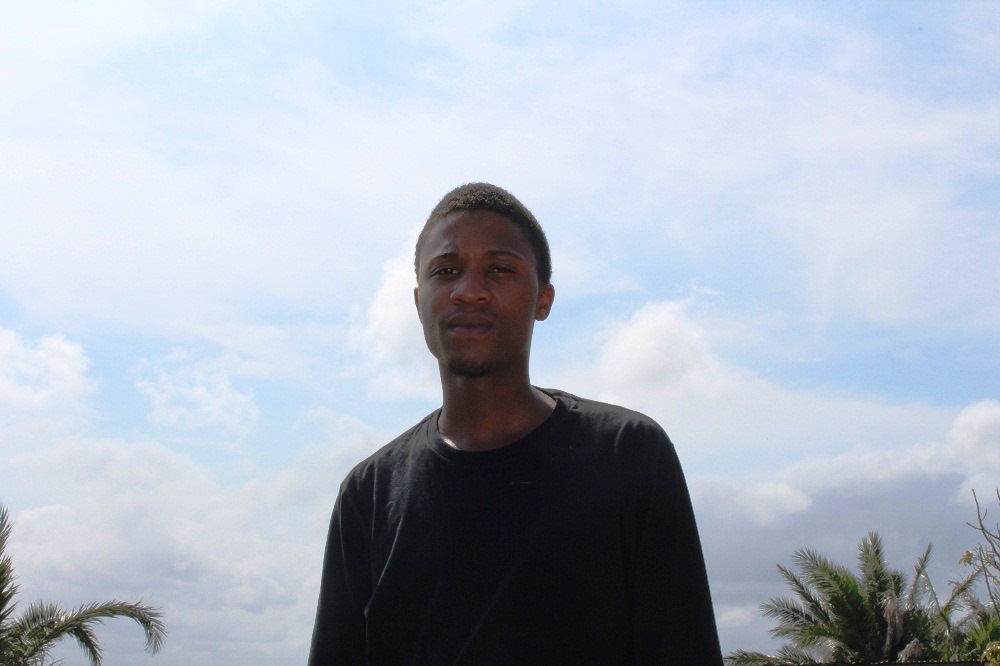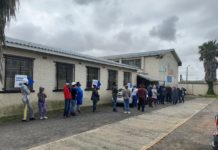Twenty two years after the advent of democracy, South Africa still has one of the highest levels of income inequality in the world. Education remains one of the factors crucial in closing the equality gap in the country, but good quality education is expensive and the poor cannot afford it. Most schools in the rural parts of the country are educationally inadequate. South Africa’s public education system is clearly split in two extremes, one for the poor and one for the rich. QINISO MBILI spoke to two young men who both attended public schools offering different resources and opportunities, about how their schools prepared them for life.
Msebenzi Hadebe, 24
I am a taxi conductor with a matric certificate and I am a breadwinner for a family of four. My two brothers are at high school and my mother is ill and can no longer work. She was a domestic worker for most of my youth, until her employers moved to another country in 2008.
In 2010, she got a job pulling weeds on the community road. This was also my matric year, I had to stand up and be the sole breadwinner while I was still a learner because my mother was not making much. I passed my matric with a higher certificate admission which meant I could not be admitted to university.
I started being a taxi conductor during my matric year, working in the morning for the school run and going back to work after school.
There were around 60 to 70 students in my class and it was one of the better classes in terms of student/teacher ratios. My school was very limited in terms of educational resources and infrastructure. We did not have computer laboratories or science laboratories but we were taught physical science and still expected to participate and compete with everyone in the national standard exams.
We sat in groups of six in the class and this would cause disruptions as kids would chat a lot more than they would have if they sat in smaller groups. Some days teaching and learning would stop because of water shortages: the school depended on rainwater kept in JoJo tanks but this was not a reliable source of water. We used pit toilets and the only sports facility we had was a soccer field with wooden goalposts. One thing that brought a little dignity to our school was that we had electricity. More than half of the windows in the school were broken and this would make learning much harder during cold weather and rain.
The R250 registration fee also made it harder for me to get enough stationery at the beginning of every high school year.
I am not blaming the lack of infrastructure for my underperformance but I am sure that I would have performed better at a better school. Some learners from my school passed relatively well but different students need different ways to learn – for some of us it is easier to understand things when you can see them or practise them.
Getting a job with this kind of matric pass is very hard because each and every employer wants only the best. I remember in 2012 when I applied for a police volunteer position with the SAPS, one of the criteria used to assess applicants was their matric pass. All those people who were successful for the position have now become full-time police officers. This is just one of many jobs I have unsuccessfully applied for.
I know that I need to go to an adult education centre and improve my grades, but not only is it too expensive for me, but it is impossible for me to stop working because I have to provide for my mother and two brothers with the peanuts that I earn. I feel like I am in this whirlpool of poverty, I know what I need to do to get out but it’s just impossible and as time goes by I am sinking deeper and deeper.
Musa Zondi
I am a part-time drummer who works for Illovo sugar as a creditors clerk. I am the youngest of my siblings and the latest breadwinner in my family. All of my siblings had decent jobs while I was at high school. My father is a retired police sergeant and my mother a retired clinic matron.
I went to Ogwini High school, a very decent government school at Umlazi. I believe going to that school helped shape my future. However, all this goes back to my financially stable family who could afford to pay for me.
I have a Bachelor’s of Technology in Accounting and have been a creditors clerk at Illovo Sugar for a year now. My school is famous for achieving a 100% matric pass rates almost every year. This was the case in 2010, my matric year. I was not even close to being the best student in my class but I still passed with quite decent marks because my school was so conducive to learning. We had almost all the facilities we needed – a library with internet, a science laboratory and a few extracurricular activities.
Our teachers were very passionate about education, they gave us all the push we needed. In my matric year, all the matrics attended class on a six to six schedule throughout the week. The morning study, from 6am to 8am, was an extra lesson for the whole class to be taught their majors. The normal school timetable would resume from 8am to 3pm and then the extra three hours until 6pm were extra lessons for those who needed it. There were 33 learners in my class and this allowed the teacher to pick up on the ones getting left behind and help them keep up to speed.
I took music as an extracurricular and participated in the school band as a drummer. I now own a set of drums and I make a fair amount of money when people hire me to play at their events. A whole lot of other activities like soccer, rugby, music etc were offered at my high school. I would hear other kids from my neighbourhood talking of their own schools and I would know that I was very lucky to go to a school like mine.
The success of a school does not only lie in the infrastructure and service. The learners who go to it and the environment they create also make it count. Attending such a school allowed me to associate myself with kids of other privileged families. Together, with the help of our working parents and access to internet, we were exposed to a rich network of useful information in terms of getting university access and finding bursaries.
My matric pass was very solid and I could have looked for a job and easily secured it. As a high school learner, I was not the most ambitious person in the world and I know that had I attended a worse school, I would have got worse results.
Two of my friends now own successful businesses and have never been to university. When they finished school, their parents gave them the capital to start up their own businesses. I am planning to return to school to study for my Masters next year so that I can further develop myself. If I came from a disadvantaged background, I don’t think I would have the choice to go back to school.
The Daily Vox, in partnership with Oxfam South Africa, will be highlighting the challenges of socio-economic inequality in a special project this month.











